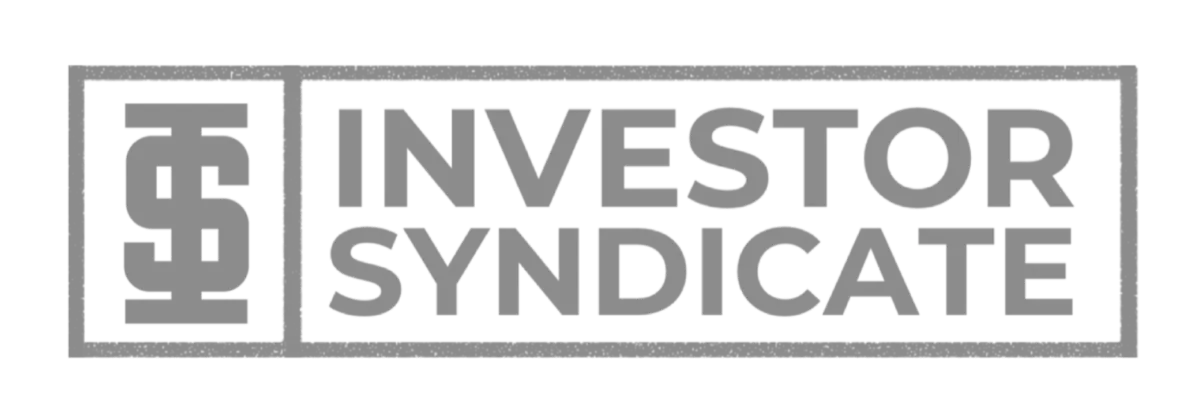Investor Syndicate Blogs
Download The Deal Flipping Playbook

5 Strategies to Increase Net Operating Income in Real Estate Investing

Real estate investing offers lucrative opportunities, but maximizing net operating income is essential for long-term success. To achieve this, investors need strategic approaches that can significantly boost profitability and ensure a healthy return on investment.
In this guide, we will explore five proven strategies to enhance net operating income in real estate investing. From optimizing property management to leveraging technology and market trends, these tactics are designed to empower investors with the knowledge and tools needed to thrive in the competitive real estate landscape.
Whether you're a seasoned investor or just entering the market, understanding and applying these strategies can make a substantial difference in your financial outcomes. Join us as we delve into the actionable steps that can elevate your real estate investment portfolio and pave the way for sustained success.
Property Renovations
Identifying Renovation Opportunities
When it comes to property management, identifying renovation opportunities is crucial for maintaining and increasing the value of real estate assets. Renovations can range from simple cosmetic updates to more extensive structural changes. Identifying the right opportunities for renovations involves a thorough assessment of the property's condition, market trends, and the needs of current or potential tenants.
One way to identify renovation opportunities is by conducting regular property inspections. This allows property managers to identify areas that require attention, such as outdated fixtures, worn-out flooring, or aging appliances. Additionally, staying informed about market trends and tenant preferences can help in identifying renovation opportunities that can attract and retain tenants.
Budgeting and Planning for Renovations
Once renovation opportunities have been identified, the next step is to budget and plan for the renovations. This involves assessing the scope of work, obtaining cost estimates from contractors, and creating a detailed renovation plan. It's essential to set a realistic budget that accounts for both the direct costs of renovations and any potential indirect costs, such as temporary relocation of tenants or loss of rental income during the renovation period.
Effective planning is key to successful renovations. This includes creating a timeline for the renovation project, obtaining any necessary permits, and coordinating with contractors and suppliers. Property managers should also consider the potential impact of renovations on current tenants and plan accordingly to minimize disruptions.
Expected Impact on NOI
Renovations can have a significant impact on the Net Operating Income (NOI) of a property. By improving the overall condition and appeal of the property, renovations can lead to increased rental income and higher property values. However, it's important to carefully evaluate the expected impact on NOI before proceeding with renovations.
Property managers should conduct a thorough financial analysis to estimate the potential increase in rental income and property value resulting from the renovations. This analysis should also consider the upfront costs of the renovations and the expected return on investment. Additionally, property managers should be mindful of the potential impact of renovations on operating expenses, such as maintenance and utility costs.
Identifying renovation opportunities, budgeting and planning for renovations, and evaluating the expected impact on NOI are essential aspects of property renovations. By approaching renovations strategically and thoughtfully, property managers can enhance the value of their real estate assets and provide attractive living spaces for tenants. Effective renovations can ultimately contribute to the long-term success and profitability of property management endeavors.
Expense Reduction
In the world of business, managing expenses is critical for maintaining a healthy bottom line. Whether you're a small startup or a large corporation, the ability to analyze and reduce expenses significantly impacts your financial health. In this section, we will explore the importance of analyzing and reducing expenses, implementing cost-cutting measures, and the effect on Net Operating Income (NOI).
Analyzing and Reducing Expenses
The first step in expense reduction is to conduct a thorough analysis of your current expenses. This involves examining all aspects of your business operations to identify areas where costs can be trimmed. From fixed costs such as rent and utilities to variable expenses like marketing and supplies, every line item should be scrutinized to determine its necessity and potential for cost reduction.
One effective strategy for analyzing expenses is to categorize them as essential and non-essential. Essential expenses are crucial for the day-to-day operations and growth of the business, while non-essential expenses may be considered discretionary. By categorizing expenses in this manner, businesses can prioritize where to focus their cost-cutting efforts.
Implementing Cost-Cutting Measures
Once the analysis is complete and non-essential expenses have been identified, the next step is to implement cost-cutting measures. This can involve renegotiating contracts with vendors, seeking more competitive pricing, or exploring alternative suppliers. Additionally, businesses can look for opportunities to streamline processes, reduce waste, and optimize resource utilization to drive down costs.
Another effective cost-cutting measure is to leverage technology to automate tasks and improve efficiency. By investing in software and systems that streamline operations, businesses can reduce labor costs and improve productivity, ultimately leading to significant savings.
Effect on NOI
The impact of expense reduction on Net Operating Income (NOI) cannot be overstated. NOI reflects the profitability of a property or business before accounting for taxes and interest. By reducing expenses, businesses can directly increase their NOI, leading to improved profitability and potentially higher property valuations.
Furthermore, a higher NOI can make a business more attractive to investors and lenders, demonstrating strong financial management and the potential for sustainable growth. This can open up opportunities for additional financing or partnerships that can further propel the business forward.
Analyzing and reducing expenses is a fundamental aspect of financial management for any business. By carefully scrutinizing expenses, implementing cost-cutting measures, and understanding the impact on NOI, businesses can position themselves for long-term success and financial stability. It's a proactive approach that not only improves the bottom line but also enhances the overall resilience and competitiveness of the business in an ever-changing market landscape.
Rental Income Optimization
Conducting Market Analysis for Rental Rates
When it comes to optimizing rental income, conducting a thorough market analysis for rental rates is crucial. Understanding the local rental market trends and comparing the rates of similar properties in the area can provide valuable insights. This analysis helps in setting competitive rental rates that attract tenants while maximizing income. Factors such as location, property size, amenities, and current demand should be taken into account to ensure that the rental rates are both appealing to tenants and advantageous for the property owner.
Enhancing Property Appeal to Tenants
Enhancing the appeal of a rental property is a key strategy for optimizing rental income. Investing in property maintenance, landscaping, and curb appeal can significantly attract potential tenants. Additionally, making interior upgrades such as modernizing appliances, updating fixtures, and improving overall aesthetics can justify higher rental rates. Creating a visually appealing and well-maintained property not only attracts quality tenants but also provides leverage in setting competitive rental prices, ultimately maximizing rental income.
Maximizing Rental Income
Maximizing rental income goes beyond setting the right rental rates and enhancing property appeal. Property owners can explore additional avenues to increase their rental income. One approach is to offer value-added services or amenities, such as laundry facilities, parking spaces, or pet-friendly accommodations, which can justify higher rental rates. Moreover, implementing cost-effective energy-efficient solutions can lower operational expenses, thereby increasing overall rental income.
Another strategy is to consider long-term lease agreements or offering incentives for lease renewals, providing stability and consistent income. Additionally, exploring short-term rental options, such as vacation rentals or corporate housing, can capitalize on seasonal demand and potentially generate higher rental income.
Rental income optimization involves a multifaceted approach that encompasses market analysis, property enhancement, and strategic decision-making. By understanding the local rental market, enhancing property appeal, and exploring additional income-generating opportunities, property owners can effectively maximize their rental income. It is essential to adapt to market dynamics, tenant preferences, and industry trends to ensure sustainable and profitable rental income. Ultimately, a well-optimized rental income not only benefits property owners but also enhances the overall value and desirability of the rental property.
Conclusion
Implementing the 5 strategies outlined in this blog can significantly increase net operating income in real estate investing. By focusing on property value appreciation, expense reduction, rent optimization, financing strategies, and property improvement, investors can maximize their returns and build a successful real estate portfolio.
If you're ready to take your real estate investing to the next level and receive expert guidance and support, consider applying to join the Investor Syndicate program. This mentorship and education program can provide the resources and knowledge you need to excel in the field.
Take the first step by completing the application form at. Investor Syndicate Application . Don't miss out on this opportunity to elevate your real estate investment journey.
Contact Us

Bet On Yourself
Empowering real estate investors with the tools they need to scale.






